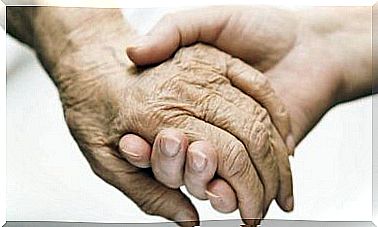What Do We Do (inadvertently) To Gain The Approval Of Others?

We all like to know that our environment values us and approves our way of being or the decisions we make. That dependency is not in itself a weakness. In fact, it is healthy, as long as we maintain a balance that guarantees the independence of our actions and decisions. If gaining the approval of others does not guarantee that independence, then we have a problem.
We all need to be cared for, validated, encouraged and supported… and not only be, but also feel that we are. Completing these needs in the relationship with others is part of what we could call healthy dependency. What’s more, satisfying them in a healthy way helps us to be able to be more autonomous in certain moments, being we the ones who support others.
This is called interdependence, and it involves both giving and receiving. This is necessary for our survival and for that of our relationships. However, in many cases things are not like that, and overdependence appears, an intense need for someone’s approval.
When most of our energies are directed to pleasing others for their approval, we enter a dangerous circle. In this sense, overdependence causes us feelings of emptiness, inadequacy, loss, confusion and insignificance.

When the goal is to gain the approval of others
To better understand ourselves as adults, it is important that we analyze some aspects of our childhood. The first influencing factor, which is not necessarily conditioning, will be: how we then receive the approval / disapproval of our parents and caregivers. This may be closely related to what we do now to seek approval or avoid disapproval. The truth is that somehow our brain could be programmed with self-defense behaviors in the face of the disapproval of others that may now be hindering our relationships.
The defenses we create in childhood when we don’t feel loved or valued enough by our primary caregivers probably served us reasonably well at the time. But these defenses today make it difficult for us to build new relationships based on trust and even intimacy. Ironically, these same defenses can also prevent us from achieving self-approval.
What do we do to avoid disapproval?
In this attempt to seek the approval of others, we often act in unwise ways. These dysfunctional behaviors are a form of self-sabotage of which, on many occasions, we are not aware. According to the proposal made by Dr. Leon F. Seltzer, these dysfunctional ways of avoiding the disapproval of others are the following:
Are you a perfectionist or always put yourself under pressure to do better
This dysfunctional behavior makes you feel compelled to try to do just about everything as perfectly as possible. This way of trying to eliminate the disapproval of others does not have to do with the pursuit of excellence, much healthier and much more selective, or with an intrinsic motivation to improve. This attitude makes “being good enough” not enough. In fact, feeling that you are not the best, the conclusion that is drawn is “not being good enough.”
Being the best version of yourself does not necessarily mean being the best. Or maybe yes. The point is that you won’t know if you don’t stop focusing your efforts on looking like what others expect (or think they expect) of you.

You avoid undertaking any project in which you may fail
When failure is equated with parental disapproval or rejection, we can also outright refuse to attempt any project where success is not guaranteed. The origin of this aversion to risk can be located in childhood, but also in later situations in which the person has taken that risk, has lost and, as a consequence, has had to pay a very high price for it.
But successful people usually are because they are not especially risk averse. They are willing to “look for it” because they see failure as the first step to ultimate success.
You anticipate another person’s disapproval by keeping a “safe” distance from them.
If in childhood you finally gave up trying to get your parents’ approval because nothing helped you feel more connected to them, you may have come to deny the need for that attachment altogether. Whether with that first relationship or with later ones, the truth is that the automatism of keeping this type of distance is usually learned.
You may be wary of others if you didn’t get the approval and support you needed as a child. Your instinct to protect your ego will force you to keep others at a distance. As a consequence, you will not be able to feel intimately linked to another. In this sense, anger is the most commonly used defense to keep people at a safe distance.
You are a complacent and codependent person
The fourth dysfunctional behavior to avoid the disapproval of others that Dr. Seltzer proposes consists of a complacent and codependent attitude. If when you were a child you learned to always put the wishes of others before your own, leaving them on a secondary plane, it is likely that you will continue to do the same.
With that complacent and codependent behavior, you take more responsibility for the thoughts and feelings of others than for your own. If when you were a child putting your needs first caused the disapproval of your parents, as an adult you may think that others will reject you if you prioritize yourself.

Final thoughts
If you have seen yourself reflected in any of these behaviors to obtain the approval of others, it is a good time to analyze in detail what you are doing that prevents you from feeling satisfied. You cannot change the past, but you can influence your present and your future.
You can reprogram your brain. And if you can’t do it alone, get help.









